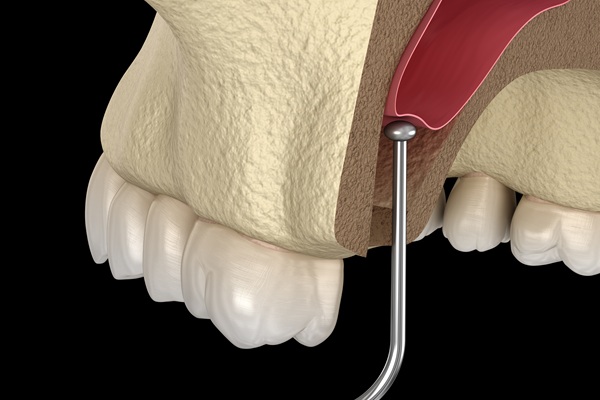3 Common Types of Jaw Pain Treatment

Jaw pain treatment ranges from preventative measures to surgical treatments. Different treatments target different conditions and disorders of the jaw. Whether you are suffering from a short-term or chronic condition, the information that follows will be helpful.
Common conditions that require jaw pain treatment
Chronic jaw pain could happen because of injury, disk slippage, nerve problems, or disorders of the temporomandibular joints. Jaw pain can also have root causes like tooth pain, cluster headaches, and sinusitis.
The underlying cause of jaw pain determines the course of treatment that an oral surgeon will recommend. Jaw pain with chronic issues at its root lends itself to therapies that manage symptoms like discomfort. Acute causes are easy to treat with one-off treatment plans that take anywhere from a few weeks to a few months to complete. Here are three common types of jaw pain treatment that oral surgeons can administer.
1. Preventative and therapeutic measures
This is a course of action that relieves and slowly corrects chronic root causes of jaw pain. For example, a patient with TMJ disorder will suffer from jaw clenching and teeth grinding. An oral surgeon will provide relief for such patients by:
- Prescribing a custom nightguard to prevent teeth grinding
- Recommending stress-relief measures for people who grind their teeth because of stress
- Recommending physiotherapy to relax the jaw muscles and improve the jaw’s range of motion
- Prescribing pain medication in the short term
Oral surgeons use preventative and therapeutic treatments as a conservative course of overall treatment. They will choose such a treatment plan when there seems to be little evidence of a jaw malformation.
2. BOTOX®
BOTOX is a paralytic that relaxes the jaw muscles, which prevents them from clenching and causing jaw pain. This is a much more effective alternative to a nightguard. For starters, the effect of BOTOX works day and night. After all, it is hard to get through the day with an appliance in the mouth. Also, protective devices cannot prevent jaw muscles from clenching. The effects of BOTOX can last a few months, providing relief for long stretches.
3. Jaw surgery
This is an intensive option that oral surgeons recommend as a last resort. They can use jaw surgery to correct the following conditions:
- A jaw deformity
- Injury to the jaw
- A slipped disk in the joints that connect the jaw and the skull
- Injury or pinching of a nerve in the face
Advances in medicine allow for minimally invasive surgical treatments, some of which are doable on an out-patient basis. Jaw surgery can be a standalone treatment, or it can be part of a larger treatment plan. In the case of a jaw malformation, surgery will usually precede orthodontic treatment. The pain typically goes away when root causes like sinusitis, infection, and cluster headaches are treated.
We can work with you toward a pain-free reality
Jaw pain treatment requires an oral surgeon with the experience and insight to provide effective treatment in the long term. Our practice has many patients who are enjoying improvements in their daily lives. Get in touch with us and make an appointment.
Request an appointment here: https://brighton.drjstearns.com or call Platte Valley Oral Surgery at (303) 997-0223 for an appointment in our Brighton office.
Check out what others are saying about our services on Yelp: Jaw Pain Treatment in Brighton, CO.
Recent Posts
A sinus lift procedure goes by many other names, including sinus elevation, sinus augmentation, and sinus graft. It can be an important step in the process of having a dental implant placed in the upper jaw to replace a missing tooth. The procedure involves raising the floor of one of the maxillary sinuses and filling…
Facial trauma treatment differs based on the severity and location of the damage. Continue reading to learn how an oral surgeon addresses facial trauma. It can cause other medical issues, so it is important to seek treatment promptly. An oral surgeon is a face trauma specialist who is trained in maxillofacial surgery and treatment. They…
Oral bone grafting procedures can help restore mouth functionality, health, and appearance. These surgical procedures vary in type and extent. Continue reading to learn more about dental bone grafts, the surgical grafting process, and why someone might need oral bone grafts.Surgeons perform bone grafts throughout the body. Oral bone grafting occurs in the mouth, usually…
An oral pathology must receive immediate treatment. This can prevent more complications later on. Your oral surgeon can help correct any dental problem. Here are the details about each common oral pathology and its corresponding treatment.This oral pathology results from a bacterial infection because of plaque buildup. Symptoms of this condition include gum bleeding and…


